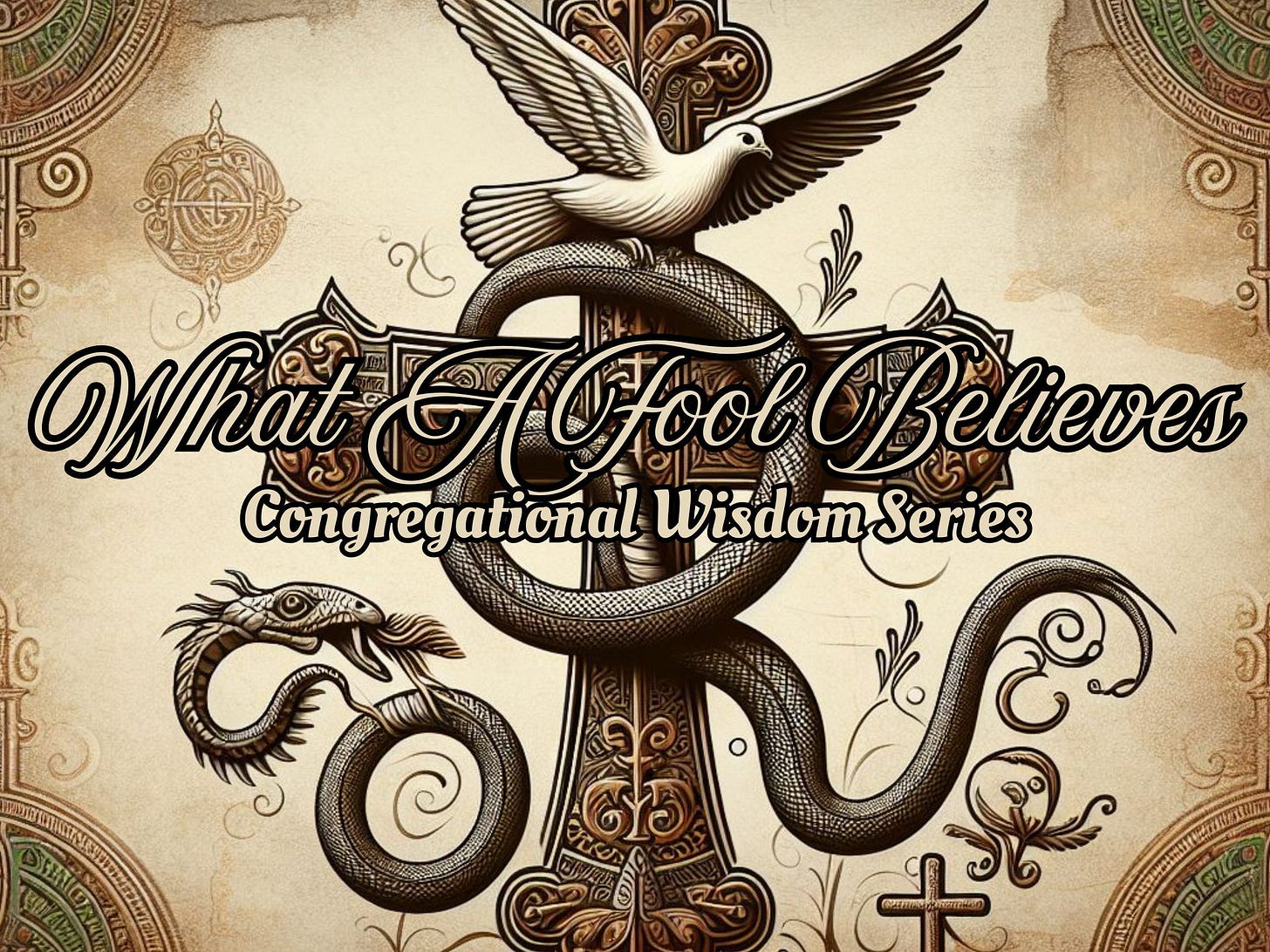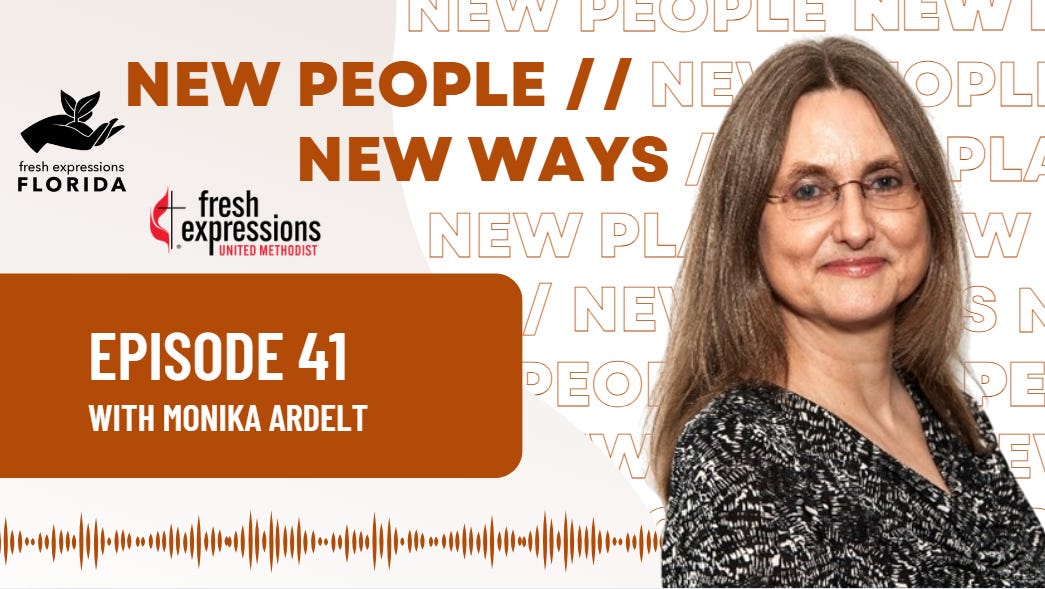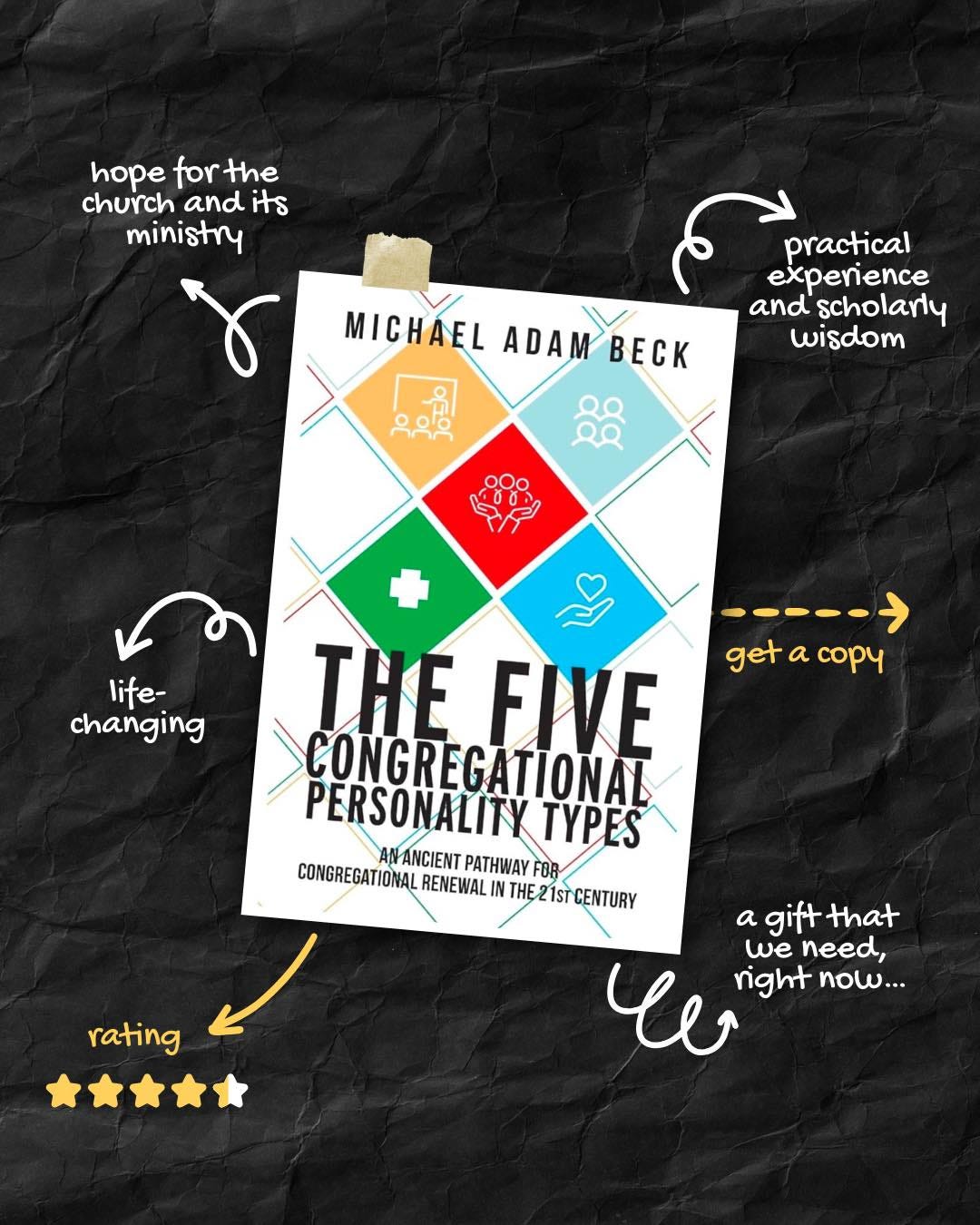“What is truth?” retorted Pilate.
John 18:38
Our world is at war. A brief scan of global headlines makes that painfully clear. Empires clash over land and power. Nations teeter on the edge of collapse. There are dozens of active armed conflicts happening across all inhabited continents. Each week brings news of missile strikes, crumbling buildings, and the haunting tally of civilian casualties. But beneath the bombs and battlefields, another war rages, one far less visible, but one that undergirds the cycle of destruction. It is a war for truth, a struggle over reality itself. In this quieter battlefield, facts are twisted, narratives weaponized, and entire populations live inside alternate worlds. It is a war of the worlds, one in which we need wise discernment to make a kingdom difference.
The Misinformation Invasion
In 1938, a young Orson Welles took to the radio airwaves with a dramatization of The War of the Worlds, H.G. Wells’ science fiction tale of a Martian invasion. Though the program was introduced as fiction, its breaking-news format led thousands to panic. Some listeners genuinely believed aliens were attacking. The confusion didn’t just reveal the power of media… it exposed how fragile our grasp on “reality” can be.
Fast forward nearly a century, and America faces a different kind of invasion. From radio broadcasts to algorithm-driven feeds, the tools have evolved, but the tactic remains the same: exploit fear, blur fact, and fracture our shared sense of what is real. We are bombarded with misinformation, conspiracy, and curated realities. Some refer to this as a “post-truth” era, where emotional resonance and ideological allegiance often outweigh evidence-based research.
In today’s America, it’s as if two different versions of the world are being broadcast simultaneously, complete with different heroes, villains, and even scientific truths.
Plausibility Structures and the Social Construction of Reality
How is it that two people can interpret the same situation in such profoundly different ways? Sociologist Peter Berger helps us understand how this fragmentation happens. In The Social Construction of Reality, Berger describes how what we accept as “real” is shaped not just by facts, but by the communities we belong to and the narratives we inhabit. He coined the term “plausibility structure” to describe the social networks and institutions that sustain belief systems (Berger & Luckmann, 109).
If you only consume news, worship, and build friendships within one ideological bubble, certain ideas will feel “obviously true,” while alternative views will seem absurd, or even dangerous.
Berger argued that religious belief, requires a religious community to support the processes of conversion and indoctrination. This helps explain why movements like “faith unbundled” or “churchless Christianity,” which lack sacred communal structures, may struggle to endure. Berger also noted that the plausibility structures once associated with religious conversion have been imitated and co-opted by political ideologies (Berger & Luckmann, 112). In the United States, political party affiliation has in many cases supplanted religious identity, and from a sociological perspective, Trumpism meets the criteria of a cult.
This isn’t just theoretical. Americans increasingly inhabit non-overlapping plausibility structures. One person’s trusted journalist is another’s “enemy of the people.” A protester is seen as a patriot, or a terrorist, depending on the feed you’re scrolling. It’s not that we disagree on policy, we are in disagreement about what is real.
The Bible and Competing Realities
This fracturing of reality isn’t new. The post-truth world didn’t begin with our ability to transmit electromagnetic radio waves over long distances. It only amplified a tendency as old as creation itself.
In Genesis 1–3, we’re introduced to a world teeming with beauty, order, and divine harmony… a reality shaped by God’s wisdom. At the heart of Eden stood two trees: the Tree of Life, symbolizing eternal life and unbroken communion with God, and the Tree of the Knowledge of Good and Evil, representing the choice between trustful obedience and rebellious autonomy. To eat from that latter tree was not just an act of disobedience, it was a declaration of independence, a decision to define good and evil on one’s own terms rather than trust the wisdom of the Creator.
In grasping for that false freedom, we fractured the harmony of creation and plunged humanity into a world of competing realities. We rejected divine wisdom and embraced a distorted self-made world, one marked by shame, blame, and isolation. From that moment on, the human story has been shaped by this same tension: Will we root ourselves in the truth of God’s love, or chase after illusions that promise power but deliver alienation? And today, as we build ever more advanced technologies, platforms, networks, and digital towers, are we using them for Babelian exceptionalism to “make a great name for ourselves” and fabricate counterfeit community (Genesis 11), or to reflect the wisdom and presence of God in the world?
Truth on Trial
In John 18, we witness one of Scripture’s most chilling conversations about truth. Jesus stands before Pontius Pilate, the Roman governor with the power to set him free or sentence him to death. Their exchange is brief but piercing:
“For this reason I was born, and for this I came into the world: to testify to the truth. Everyone on the side of truth listens to me.” Pilate replied, “What is truth?” (John 18:37–38).
Ironically, truth is standing right in front of Pilate. The one who is the “way, the truth, and the life” (John 14:6) is being interrogated by a man so entangled in political gamesmanship and moral relativism that he can no longer recognize it.
Pilate, as a political leader, was no neutral bureaucrat. Historical sources depict Pilate as a ruthless and cynical governor, known for brutality, corruption, and contempt for Jewish customs. The Jewish historian Josephus and the philosopher Philo describe Pilate as a man who habitually used excessive force, stole funds from the temple treasury, and provoked unrest with deliberate acts of sacrilege.
Hemmed in by political pressure, imperial loyalty, and the threat of unrest, Pilate bows to a narrative he knows is false. He becomes complicit in a system where truth is expendable if it disrupts the power structure.
This moment is the collision of two plausibility structures:
The Kingdom of God, rooted in truth, humility, and self-giving love.
The Empire of Rome, rooted in domination, propaganda, and fear.
Pilate’s question, “What is truth?” echoes through the ages. In a fragmented world where every hive has its own “facts,” where news and misinformation swirl together, Pilate’s shrug is painfully familiar.
Caesarea Philippi: Where Allegiance Is Tested
But let’s take a step back to consider a question Jesus asked his disciples.
“Who do you say that I am?” (Matthew 16:15)
In a world fragmented by competing narratives, Jesus takes the disciples to Caesarea Philippi, a place thick with spiritual and political symbolism. This city, formerly known as Paneas, was a hub of Greco-Roman paganism. Devoted to Pan, the half-man, half-goat fertility god, its infamous cave, called the Gates of Hades, was thought to be an entrance to the underworld. Later renamed Caesarea Philippi by Herod Philip to curry favor with Caesar, the city became a hub of emperor worship, filled with temples dedicated to Caesar and the imperial cult. In this charged environment, amid the plausibility structure of imperial propaganda and spiritual darkness, Jesus chose to ask his disciples the most important question of all.
Simon Peter answers, “You are the Messiah, the Son of the living God” (Matthew 16:16). This acknowledgement hyperlinks Jesus’s identity with all the messianic expectations throughout Scripture. Consider the following terms:
Χριστός (Christós) “Anointed One” the Messiah, chosen by God for a sacred purpose.
κύριος (kýrios) “Lord” or “Master” the one supreme in authority, controller of our lives.
מָשִׁיחַ (māshîyach) “Anointed” consecrated as King, Priest, or Prophet.
מֶלֶךְ (melek) “King” one who reigns, rules, and governs with divine authority.
To follow Jesus is to live under the reign of the Messiah, the Lord, the Anointed, the King. It is to transfer our citizenship to a new kingdom.
The divine revelation of his kingship was a direct challenge to the thrones of Pan, Caesar, and every other false god. In a place saturated with rival gods and counterfeit kings, this question wasn’t just theological, it was subversive. It forced a choice. In that moment, Peter’s confession, was nothing less than an act of resistance. It was a declaration of allegiance to a different kingdom, and that truth is the rock which Jesus says he will, “build my church, and the gates of Hades…” (literally right behind him) … “will not overcome it” (Matthew 16:18).
In my sermon Sunday I asked the old played out question, “if you were arrested today for being a follower of Jesus, would there be enough evidence to convict you?” It may be cliché, but it cuts to the core. In a world saturated with Christian Nationalism, in which people hold more allegiance to their party affiliation than Jesus, we are invited to examine whether our lives actually bear witness to Jesus’s dominion.
And that means asking hard questions: Who or what is managing our life? Whose voice shapes our decisions, our values, our actions? Like Peter, we are invited to confess Christ not in sanitized sanctuaries but in contested spaces, amidst empires and ideologies that demand our loyalty.
Allegiance in the Age of Alternate Realities
In our modern-day war of the worlds, we are faced with divergent realities fueled by polarized media, tribal identities, and competing plausibility structures. Trumpism is only one manifestation of this larger unraveling: a movement that baptizes authoritarianism in Christian language, where cruelty masquerades as strength and truth becomes negotiable. But let us be clear, the distortion of the gospel is not confined to one political party.
Too often, the Republican Party equates God with guns, markets, and militarism, while the Democratic Party trades spiritual values for secular progressivism. Both have idols. Both reduce the gospel to something manageable, predictable, and useful to their platforms. But the kingdom of God is not a subsidiary of any earthly regime.
To confess Jesus as Christ—the Anointed One, the Messiah, the Lord—is to renounce all other claims to ultimate authority, including the seductive narratives of nationalism, partisanship, and power. In a world where both the political Right and Left claim to speak for God, our allegiance is with Jesus alone.
This doesn't mean apathy or withdrawal from public life. It means prophetic participation. It means being rooted not in party lines but in kingdom ethics: compassion, justice, humility… truth.
Wisdom in a Post-Truth World
But how do we discern what is true in a world where lies feel more plausible than love?
This is where the three dimensions of wisdom offer a gift for our times:
Cognitive: the pursuit of truth through intellectual humility and critical thinking.
Reflective: the ability to examine one’s own biases and take multiple perspectives.
Compassionate: the capacity to respond to others with empathy, care, and love.
In a post-truth society, where facts are weaponized, identity is politicized, neighbors are demonized, and where cruelty is trending, these three dimensions provide a framework for discernment. Wise discernment means seeing through the noise. It means refusing to confuse charisma for character, volume for virtue, or popularity for truth. It means following a crucified King through the wreckage of empire and saying, “I belong to a different kingdom.”
Wisdom is not about winning arguments but living in love-fueled truth.
Living Wisdom: A Call to Action
So what now?
It starts with a confession of allegiance: Jesus is Lord—not Caesar, not country, not party, not platform.
Let us examine the plausibility structures we inhabit. What voices shape our vision of the world? What stories define us and our neighbors? What truths are we defending, and do they look anything like Jesus?
Let us cultivate wisdom.
Study deeply. Reflect honestly. Love generously.
Reject cynicism. Resist dehumanization.
Be suspicious of power that thrives on cruelty, and trust in a kingdom built on compassion.
This is how we become living, breathing, Spirit-filled evidence that Jesus is real, and that his way is not just possible, but the only pathway to peace in a world at war.
Let us walk wisely.
Speak truth in love.
Refuse to play by the rules of empire.
And declare with our lives, not just our lips:
No King but Jesus.
Let’s continue the conversation. Share your reflections below or in the Congregational Wisdom Circle Facebook group. What metrics are you using in your church? What do you wish we were measuring instead?
Maintenance Is Not the Mission
How do we measure what really matters?
The Science of Wisdom
In this episode, Michael and Jessica sit down with Dr. Monika Ardelt, a leading wisdom scholar, for a deep dive into the science of wisdom—and why it matters now more than ever. We explore the 3D Wisdom Scale, wisdom and aging, bad theology, organizational health, and how churches can actually cultivate wisdom in a rapidly changing world. If you care about the future of the church, leadership, or just becoming a wiser human, you do not want to miss this one.
Altogether Now: Seven Generations and Beyond
February 26–28, 2026 | Ocala, Florida
What if the future of the church wasn’t sealed behind stained glass, but planted in dog parks, gyms, tattoo parlors, and recovery circles? Join us in Ocala—ground zero for the Fresh Expressions movement in the U.S.—as we dream, co-create, and become the church the world needs.
Let’s gather across generations, cultures, and denominations to embody love, justice, and grace—altogether now.
Register now—pay what you can.
#FXUM26 #FreshExpressions #AltogetherNow #SevenGenerations #ChurchReimagined
The Five Congregational Personality Types
Are you a pastor navigating a new appointment? A congregation preparing to receive a new leader? Or just in a ministry season that calls for a fresh start? While there are plenty of personality assessments out there, there’s only ONE designed specifically for churches.
Every congregation has a distinct personality type. That personality can keep a church stuck—or propel it into growth and maturity, depending on how it’s understood and used. Rooted in psychosocial theory and biblical archetypes, this model will help you uncover:
-Which of the five personality types best describes your congregation
-How to nurture your church’s unique culture and strengths
-How to recognize the “shadow side” of your type—and transform it into a strength
-Your church’s #1 faithfulness strategy and clear, actionable next steps.
Take the free inventory here use the book to help live into your full potential!












I have long appreciated Peter Berger's work. A Christian, who was also a sociologist. Thanks for bringing his thinking back to the conversation.
Professor Beck. I appreciate the consistent depth you bring to your writing. These are long and deep so you can't just zip through. So much on Substack feels like writers trying to communicate in tweets, and I think it's making us dumber. But the challenge is most people will not take the time to read what you are putting out into the world. For what it's worth, I look forward to your newsletter and carve out time to really sit with it.